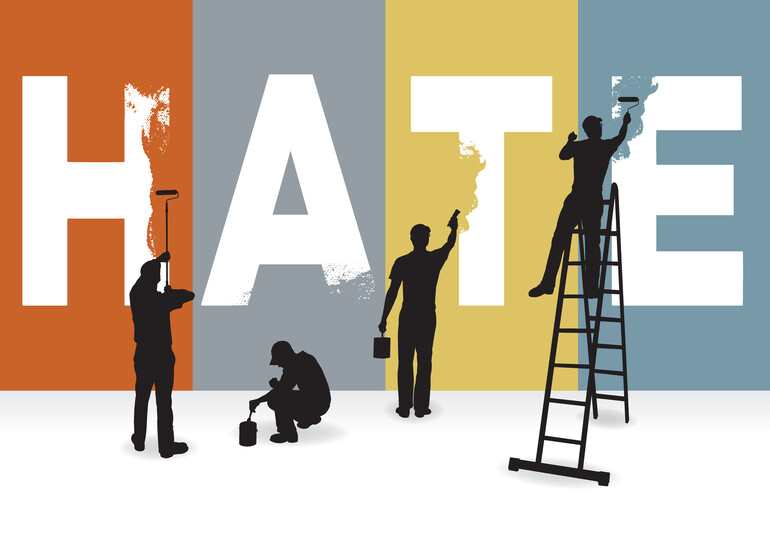“Thank God Almighty, we're free at last!"
Who could forget that stirring declaration of Martin Luther King Jr., born 90 years ago this January? King’s speech inspired a cheering crowd of one-quarter million in our nation’s capital. Their march on Washington is a landmark of American history and a big reason to celebrate Martin Luther King Jr. Day, which this year falls on Jan. 21.
Christians especially can appreciate King’s legacy, since the resurrection life of Jesus in His Spirit liberates us from bondage to racism. Sadly, some who claim Christ are unenthusiastic about King's legacy. Several decades ago when I proposed an article for an Adventist publication about Martin Luther King Day, a blunt rebuff bounced back.
"Why would you write about that man?" the editorial assistant chided. "King had character deficiencies."
"Who doesn't?" I argued. "But despite whatever faults Dr. King had, let's remember what he stood for. By advocating nonviolence he made America a better place, even for us white people."
"Besides," I persisted, "the holiday bearing King's name transcends the man himself. It provides opportunity for all Americans to celebrate cleansing from slavery's dark history. Martin Luther King Day also provides time to search our hearts and repent of residual racism."
A good argument, I thought, yet my article never got published. God knows I tried.
Looking around our world, who could deny that religion actually fuels the fires of hatred and prejudice? One need not visit Jerusalem or Tehran to notice that belief in God is more of a Grand Canyon than a Golden Gate Bridge in human relations. Neo-Nazi rallies in the American Bible Belt give atheists an excuse to deride Christian faith. (Unbelievers seem less eager to discuss the failed promises of secular socialism.)
Overcoming racism requires transcending religious theory so we embrace the example of Jesus Christ. Our Lord on Earth waged war against prejudice sponsored by the religious establishment of His day. He shocked foes and friends by extending Himself to despised Samaritans. Today it remains true that only the warm love of His gospel can cleanse the proud heart of racial hatred: "He Himself is our peace, who has made both one, and has broken down the middle wall of division between us" (Eph. 2:14, NKJV) and "Therefore receive one another, just as Christ also received us, to the glory of God" (Rom. 15:7).
Despite those Scriptures' powerful proclamations and admonitions, racism slithers under the doors of churches and even coils behind the pulpit. You might question that assertion if you share my skin color. But take time for a heart-to-heart talk with a veteran black or Hispanic leader, and what you hear may spark surprise and grief.
Several I have spoken with have baptized more souls than I ever will. These leaders have a right to be heard, but they confide a dilemma: If they speak out, it appears they have a partisan attitude. Yet if they keep quiet and try to be team players, they risk betraying their ethnic heritage and their responsibility to foster unity (not mere compliance with interracial policies and procedures).
Thank God people are praying about these things, but we must also work together in Christ's name to confront and conquer the demon of racism. First we must understand the depth of the problem. Where are our churches falling short?
Usually racism in the Adventist community is subtle. For example, many minority leaders believe there remains a denominational glass ceiling above which they cannot be promoted (except in token instances). Church administrators I've discussed this with express frustration, believing much is being done to achieve proportionate racial representation in leadership. Indeed the Seventh-day Adventist Church has made significant progress on every level. We need more.
In my opinion, the greatest example of prejudice in the Christian church is the low priority we assign to racism on our “to do not” list of sins. Most Adventists seem to regard racism as more a social misdemeanor than a spiritual felony. Yet we have been warned: “The inhumanity of man toward man is our greatest sin” (Ellen White, Ministry of Healing, p. 163).
Sin thus involves more than violation of a written code. Actually, evildoing is basically a violation of relationships. Consider the Ten Commandments, the biblical foundation of morality. The first four address one's relationship to God, and the rest primarily deal with interpersonal relationships. No wonder "love is the fulfillment of the law" (Rom. 13:10).
What a witness this world would have if believers of all colors and cultures cherish humble hearts, loving one another as Christ has loved us. Seventh-day Adventists ought to lead the way, and Martin Luther King Day seems a good time to start.










